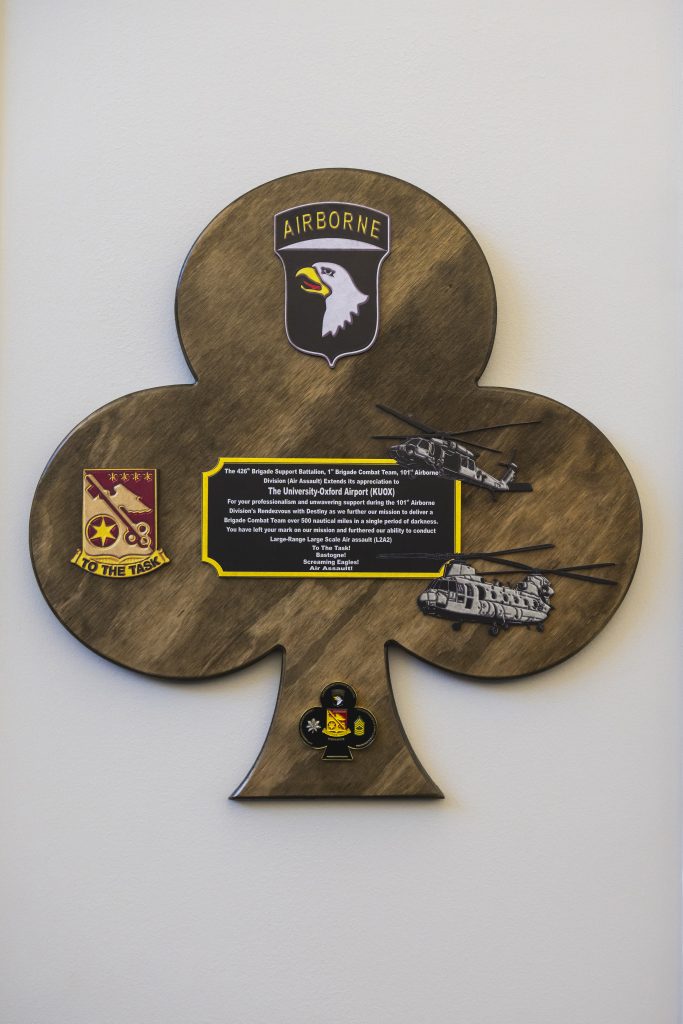
Several AH-64 Blackhawk helicopters fly near the University-Oxford Airport, which hosted two recent training missions. The airport staff received a plaque to commemorate their 'professionalism and unwavering support.' Photo by Staff Sgt. Raymond Valdez/101st Airborne Division
Facility served as refueling spot for major training exercise
By Clara Turnage
Three military divisions have recognized the Airport at Ole Miss for its assistance during two recent training missions.
In January and August, the University-Oxford Airport served as one of many stops during a large-scale air assault training mission for the 101st Airborne Division, the 426th Brigade Support Battalion, and the 1st Brigade Combat team. The military units recently recognized the airport for its service with a plaque recognizing the facility’s “professionalism and unwavering support.”
“I’m happy to do it,” said Jacob Pind, University of Mississippi airport manager. “It’s our act of appreciation – a way to say ‘thanks’ back to the military for what they do for us.
“The reason is that we’re supporting our military and the way that they’ll support us at any moment.”
The training included more than 350 troops, 80 flight crew members, and 60 support troops on 24 AH-64 BlackHawk helicopters flying into the university’s airport, where they refueled and camped for the night before flying on to their next stop.
“The facilities at Oxford-University Airport enabled the 426th Brigade Support Battalion from the division’s 1st Brigade Combat Team to establish the rest and resupply areas needed for our maintainers,” said Capt. Steve Nava, deputy division public affairs officer.

“Thanks to these facilities and the wonderful staff at the Oxford-University Airport, our logisticians, helicopter fuelers, and mechanics were able to support the L2A2 as the division’s aircraft stopped at the airport on their way to Fort Johnson.”
The training simulated what a combat mission across an ocean might involve – with Oxford, Tunica, Millington, Tennessee, and other locations serving as “islands” where the troops could stop and refuel. The purpose of such missions is to prepare for any eventuality, Nava said.
“Large-scale, long-range air assault operations like the one we did last month simulate the environments we expect to face in real-world scenarios,” he said. “The biggest takeaways from these types of exercises are the logistical requirements we need to be able to move the necessary amount of soldiers and equipment given the constraints – namely, time and distance – of the modern battlefield.
“Put more simply: these training events ensure that the 101st Airborne Division (Air Assault), if called upon, is ready to go anywhere in the world to fight tonight and win.”
The University-Oxford Airport will continue to partner with the military divisions however needed to support that mission, Pind said.
“We opened the door to them,” he said. “And we will keep supporting them as long as we can.”



